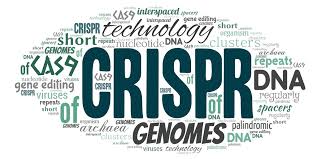Immune cells altered by CRISPR are safe to use in cancer patients, according to results of a clinical trial reported today (February 6) in Science. While the study aimed to examine safety only, an initial look at efficacy indicates that the intervention was not a cure.
CRISPR has been touted as a revolutionary tool that has the potential to cure diseases or turn a person’s own T cells into potent cancer killers. And so researchers wanted to know: “Can CRISPR live up to its hype?” study coauthor Carl June, a cancer researcher at the University of Pennsylvania, tells HealthDay News.
June and his colleagues developed another powerful tool to ramp up T cells’ ability to attack cancer cells, the chimeric antigen receptor, or CAR, T cell treatment. In this technique, a person’s T cells are extracted and “reprogrammed” to produce an artificial T cell receptor that can attach to cancer cells that produce a specific protein on their surface, marking them for destruction. Once a person’s T cells are reprogrammed, they are reinfused into the body.
In the new study, June and his colleagues used the CAR T technique and then, before reinfusing the cells, used CRISPR to delete three genes from the cells’ DNA. The team deleted two genes that interrupt the efficacy of T cells’ receptors at targeting cancer and one that encodes the PD1 protein, which puts the brakes on the cells’ immune response. Knocking out the two genes related to the T cell receptor was also theorized to boost the expression of a lentiviral-inserted gene that produces the CAR, the cancer-targeting T cell receptor called NY-ESO-1. The team wanted to see if the modified T cells survived in the body and targeted cancer cells better than cells only reprogrammed with CAR T treatment.
The team planned to test the combined CAR T–CRISPR technique in four patients. One, a woman in her 30s with sarcoma, died before her edited cells were ready for infusion. The other three—two woman with multiple myeloma and a man with sarcoma, all in their 60s—underwent the treatment. Bloodwork from the patients taken after treatment showed the CRISPR-edited cells circulated in the body for at least nine months. That’s longer than cells edited with CAR T alone, which in similar studies last only two months. The doubly treated T cells also seemed better at identifying and killing cancer cells compared to only CAR T cells.
One concern with CRISPR is “off-target” effects, in which the wrong DNA is unintentionally edited. This did happen, the researchers found, but the number of cells with unintended changes was minimal and they didn’t last too long in the body. In other words, the clinical trial was a success, showing CRISPR can be used together with CAR T to target cancer cells, the researchers report.
“This is a Rubicon that has been decisively crossed,” Fyodor Urnov, a genome editor at the University of California, Berkeley, who was not involved in the study, tells Science. It is the first time this type of study has been done in the United States, he says, and it answers “questions that have frankly haunted the field.”
It is exciting technology, Catherine Diefenbach, an associate professor at NYU Langone Health’s Perlmutter Cancer Center in New York City who was not involved with the study, tells HealthDay. “This is a new way of engineering T cells to recognize tumor cells, but all they’ve shown here is that they can infuse these cells into patients, and no one got hurt.”
The effects on the patients’ cancers was only mediocre. The man’s sarcoma tumor shrank, for example, but his cancer eventually progressed and so did the women’s cancers. One has died since receiving the treatment.
“It wasn’t like you turned off those genes and those T cells started doing things that were amazing,” Antoni Ribas, an oncologist at University of California, Los Angeles, who was not involved in the study, tells Science. There’s work to be done to make the treatment more effective. But, going forward, giving patients CRISPR-edited cells is “going to be easier—because they did it first.”







